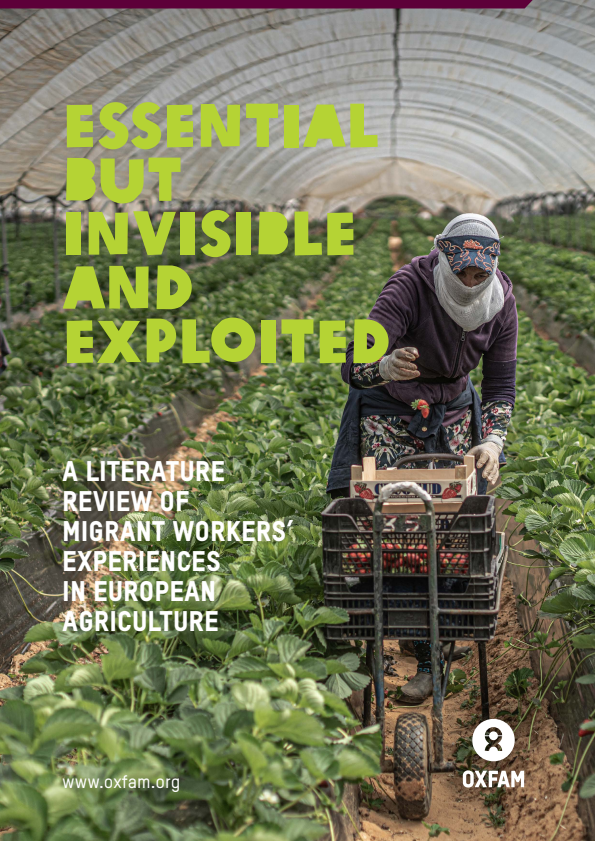By Ruiz-Ramírez, Carlos, Castillo-Rojas-Marcos, Juan, Molinero-Gerbeau, Yoan
The EU’s agricultural sector depends on migrant labour from more recently acceded member states, non-EU European countries, and non-European countries. A study of literature covering Finland, France, Germany, Greece, Italy, the Netherlands, Poland, Spain and Sweden shows the broad range of problems faced by millions of migrant workers who keep Europe fed. The work is hard, days often long – and employers and intermediaries can be exploitative. Migrants can either be hired after they arrive or in their country of origin. For the latter, in order to pay lower wages and/or maintain deliberate demographic selection criteria (based on gender, origin, migration status, etc.), some employers work through intermediaries to hire ‘posted workers’. Not only do these migrants often pay to be hired, but they may also find their pay reduced further to cover private health insurance when they begin working, because they are not covered by social insurance in the country they work in. In terms of spontaneous arrivals of migrants, although a large proportion of labour is from the newest EU members, such as Romania and Bulgaria, there is a large range of nationalities represented, among which there is also a significant part of irregular migrants who do not come from the EU, i.e., those without valid paperwork to be in the country. For the latter, a work contract, even with unfair/unethical/exploitative conditions, is one of the only ways to regularize their status in Europe and obtain authorized residence in most European countries. This gives some employers greater leverage over them, and thus more opportunity to exploit them. Additionally, those holding short-term seasonal work permits face substantial challenges due to the conditions and terms of their permits and recruitment processes. Similarly, undocumented migrants find themselves in an even more precarious position, heavily dependent on their employers due to limited opportunities to regularize their status and access decent work. Wages for staff are low, in some cases below the local minimum wage. A common tactic for underpaying migrants is to deduct the cost of basic needs such as accommodation, food and mandatory protective equipment from wages, often at inflated prices. Migrants also face delayed payments, the denial of payment, or unpaid overtime. However, workers are unlikely to complain due to fear of reprisals, ranging from being further denied work or pay, to dismissal. For those undertaking piecework, the incentive to self-exploit has serious health consequences. Housing arrangements vary. For those living on-site, provisions tend to be very basic: migrants often lodge inside cramped containers. Those who do not live on site often live in makeshift shantytowns nearby, without access to electricity, running water or other basic infrastructure. Those without an official address, cannot register with a clinic, and thus cannot access healthcare services. The remoteness of farms can make access to shops and other services difficult, and transport can be prohibitively expensive. Without appropriate translation of safety instructions and, in many cases, the provision of legally required safety equipment, migrants are put at risk. For example, 20 workers were poisoned by phytosanitary products in Italy; and a Nicaraguan worker in Murcia, Spain, died after working 11 hours in 44ºC heat without being provided water. In some cases, employers use violence against their staff, including forcing them to remain silent about workplace abuses, confiscation of personal documents and sexual assault. In some cases, migrants’ frustrations with their exploitation have led to acts of resistance. However, in most cases, employers have tended to simply replace their workforces for subsequent seasons, as a form of ‘union busting’ in the face of such resistance. Although the COVID-19 pandemic caused the plight of migrant agricultural workers to enter the news in some countries, their ‘essential worker’ status did not result in any actual improvement in their treatment.
Nairobi: Oxfam International, 2024. 73p.




